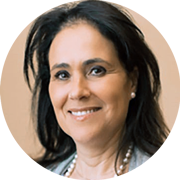Contributing to strengthening health systems
For a lasting impact, even after our hospital ship departs.
Shaping the future: Cultivating sustainable projects
Mercy Ships supports hospitals, clinics and healthcare professionals in the countries visited by offering them training opportunities and renovating some of their infrastructures.
In this way, we help improve access and quality of healthcare and maximize the impact of our hospital ships long after their departure.
Medical infrastructure renovations
Together with local leaders, governments and the national ministries of health, development teams assess healthcare needs in local hospitals and design and implement renovation projects.
Agriculture training – Food for Life
There can only be good health with a good and balanced nutrition.
A concrete example: Dental Training in Guinea
Committed partnerships with host countries
The COVID-19 crisis around the world has highlighted the importance of a strong healthcare system and prompts us to redouble our efforts to better train local medical personnel.
To date, 6,940 local healthcare professionals have benefited from our training sessions or mentoring opportunities onboard the ship.
To improve care and training, Mercy Ships offers host countries a multi-year partnership structured in three phases.
Phase 1. Collaborative Assessment
Mercy Ships builds relationships with a country and listens attentively to government and health authorities. Local surgical providers and NGOs already active on site are included in the discussions. This initial phase leads to the signing of a memorandum of understanding with the government, aligned with WHO development goals. An analysis is then conducted on the training needs and requests for local healthcare professionals.
Next, the situation is assessed in various areas such as surgical and ancillary service capacity, port infrastructure, and security levels, and initial contact is made with key stakeholders. A preparatory team is then sent on-site several months before the ship’s arrival to finalize the many logistical aspects.
Phase 2. Ship Deployment
For 10 months, the hospital ship remains docked in the host country. More than 2,000 volunteers take turns providing free surgical and dental care, training local healthcare staff, and renovating health facilities.
Phase 3. Training & Support
Project implementers return to understand any challenges faced by local healthcare professionals in implementing learned materials and skills, provide further instruction, as well as offer encouragement and additional input.
On subsequent visits, teams ascertain how the work of Mercy Ships changed the lives of patients and trained healthcare professionals and evaluate the sustained hospital and clinic improvement. Lessons learned are used to inform future work.

Ihsane Ben Yayha - President of the World Dental Federation (FDI)
"With good healthcare professionals, the overall health level of the population will certainly improve. It is true that the training partnership model we have with Mercy Ships is unique. This is the first time I’ve seen this type of collaboration to train specialists, and I hope it won’t stop here."

